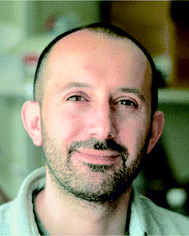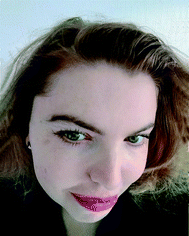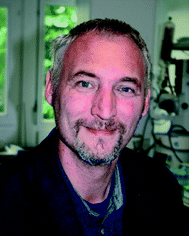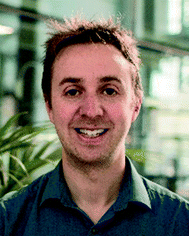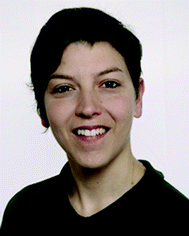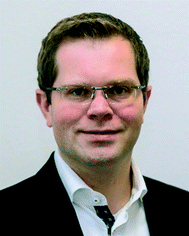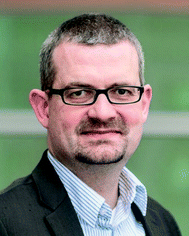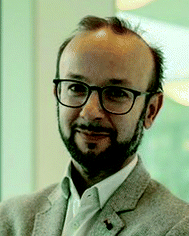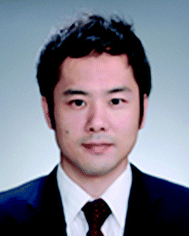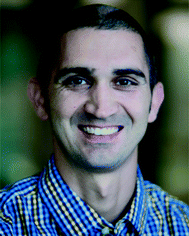Contributors to our ‘New Talent’ Collection
This Profile article offers a brief insight into some of the researchers who have contributed to this themed collection on the emerging investigators in medicinal chemistry and the great work that is being done by them. We would like to congratulate them and their teams on their achievements to date and hope they have continued success in the future as they continue their careers within the medicinal chemistry field.
Alessandro Angelini was born in 1978 in Verona (Italy). He received his PhD degree in Biochemistry and Biotechnology under the supervision of Prof. G. Zanotti from the University of Padua (Italy) in 2008. He was a postdoctoral researcher in the laboratory of Prof. C. Heinis at the École Polytechnique Fédérale de Lausanne (EPFL) and a research scientist in the laboratory of Prof. K. D. Wittrup at the Massachusetts Institute of Technology (MIT). Since 2017, he is a tenure-track assistant professor at the Department of Molecular Science and Nanosystems of the Ca′ Foscari University of Venice (Italy). His research is primarily focused on the development of therapeutic peptides and proteins using directed evolution approaches.
Agnieszka K. Bronowska received her PhD in computational medicinal chemistry from University of Warsaw, Poland and held further postdoctoral positions in the groups of Prof. Steve Homans at the University of Leeds, Prof. Pavel Hobza from the Institute of Biochemistry and Organic Chemistry in Prague, Czech Republic, and Prof. Frauke Graeter at Heidelberg Institute for Theoretical Studies in 2009. Prior to Newcastle, she was an Independent BIOMS Research Fellow at the University of Heidelberg, Germany. Currently she is a Senior Lecturer in Computational Medicinal Chemistry in the School of Natural and Environmental Sciences, Newcastle University. Her current research interests revolve around structure-based drug design as a strategy to inhibit ligand–protein and protein–protein interactions, discovery of novel “druggable” binding sites for small molecules, and development of allosteric inhibitors.
Andreas Brunschweiger was born in Germany in 1976. He studied pharmacy at the University of Kiel, Germany, and did doctoral studies in medicinal chemistry in the research group of Prof. Christa Müller at the University of Bonn, Germany. After a postdoctoral stay in the same group, he joined the group of Prof. Jonathan Hall at the ETH Zurich, Switzerland, where he was involved in the development of mirCLIP, a chemical biology technology for microRNA target identification. He is currently leading a research group at TU Dortmund University, Germany. The research interests of his group comprise molecular evolution with DNA-encoded libraries, development of small molecule barcoding strategies, and translation of synthesis methodology to encoded compound formats with a particular interest in heterocyclic chemistry. Recently, his group showed a micellar catalysis-based approach for synthesis of DNA-tagged compounds.
Dr. Daniel Cole was born in the United Kingdom in 1982. He received his PhD in Physics from the University of Cambridge in 2008, and held postdoctoral positions at the National University of Singapore and with Prof. Mike Payne FRS, at the University of Cambridge. In 2013, he joined the group of Prof. William Jorgensen at Yale University as an ERC Marie Curie Fellow. Since 2016, he has been a lecturer in computational medicinal chemistry at Newcastle University. His current research interests are in the derivation of classical molecular mechanics force fields from quantum mechanics, and their applications to computer-aided drug design.
Stephanie Federico was born in Italy, in 1983. She received her PhD in Chemical and Pharmaceutical Sciences from University of Trieste (Italy) in 2011. Currently she is Assistant Researcher in Medicinal Chemistry at the same University. Her current research interests concern GPCRs (e.g. adenosine receptors), kinases and nucleotidases. In particular, her research is focused on design, synthesis and characterization of heterocyclic derivatives as ligands for these targets as both potential therapeutic agents and tools for protein investigations which can also require functionalization of ligands with reporting moieties (e.g. fluorescent moieties).
Finn Kristian Hansen was born and grew up in Flensburg, Germany. He became interested in medicinal chemistry during his pharmacy studies at the University of Hamburg. In 2006, he joined the research group of Detlef Geffken at the University of Hamburg. In 2009, he was awarded a PhD and moved in January 2010 to the University of Florida where he worked with the late Alan R. Katritzky as a postdoctoral fellow. Subsequently, he was a junior group leader at the Institute for Pharmaceutical and Medicinal Chemistry, Heinrich Heine University Düsseldorf. In November 2016, he became a Junior Professor at the Institute of Pharmacy, Leipzig University. His research interests focus on the development of histone deacetylase inhibitors, inhibitors of protein–protein interactions and multi-target drugs.
Oliver Koch studied pharmacy and computer science at the Philipps-University Marburg, Germany, where he also received his PhD in pharmaceutical chemistry. After a postdoctoral research at the Cambridge Crystallographic Data Centre in 2008, he joined MSD Animal Health Innovation GmbH, before becoming a junior group leader at TU Dortmund University, Germany. Currently he is a Group Leader in Computational Medicinal Chemistry and Molecular Design at Westfälische Wilhelms-Universität Münster, Germany. His current research interests are on the development and application of computational methods in medicinal chemistry with focus on structure-based design and data-driven decisions, and gaining a better understanding of protein–ligand interactions.
Javier Montenegro received his PhD (2009) from University of Santiago de Compostela, Spain. He performed doctoral stages in Cambridge (Prof. Steven Ley) and Scripps (Prof. Reza Ghadiri). He carried out postdoctoral studies with Prof. Stefan Matile in the University of Geneva (Switzerland). In 2012 he returned to Spanish Academia with a Juan de la Cierva fellowship and in 2014 with a Ramón y Cajal contract. He received prestigious awards such as the ERC, the HFSP research grant and the Spanish Royal Society award. Research in the Montenegro group is focused in supramolecular assemblies for chemical and synthetic biology with broad applications such as differential sensing, gene and protein delivery systems, ion channels and tubular-template composites.
Youhei Sohma was born in Japan, in 1979. He obtained his PhD from Kyoto Pharmaceutical University in 2005 under the direction of Professor Yoshiaki Kiso. He then moved to the University of Chicago in the group of Professor Stephen B. H. Kent. In 2009, he returned to Kyoto Pharmaceutical University as an assistant professor. In 2012, he joined Professor Motomu Kanai's group at The University of Tokyo as a lecturer & group leader of ERATO project, JST. He has received several awards, including Commendation for Science and Technology by the Minister of Education, Culture, Sports, Science and Technology, Award for Distinguished Young Scientist. His current research interest is chemo- and target-selective chemical transformations of peptides and proteins for medicinal applications.
Bill Wuest was born on Long Island, NY, USA, in 1981. He received his PhD in Organic Chemistry from the University of Pennsylvania in Philadelphia, PA, USA in 2008. He began his independent career in 2011 at Temple University and was the Daniel Swern Early Career Development Professor before moving to Emory University in Atlanta, GA in 2017. Currently he is the Georgia Research Alliance Distinguished Investigator and Associate Professor of Chemistry. Research in the Wuest Lab focuses on medicinal chemical biology and natural product total synthesis with a focus on antibiotic development.
| This journal is © The Royal Society of Chemistry 2019 |

